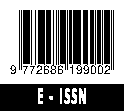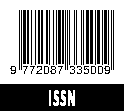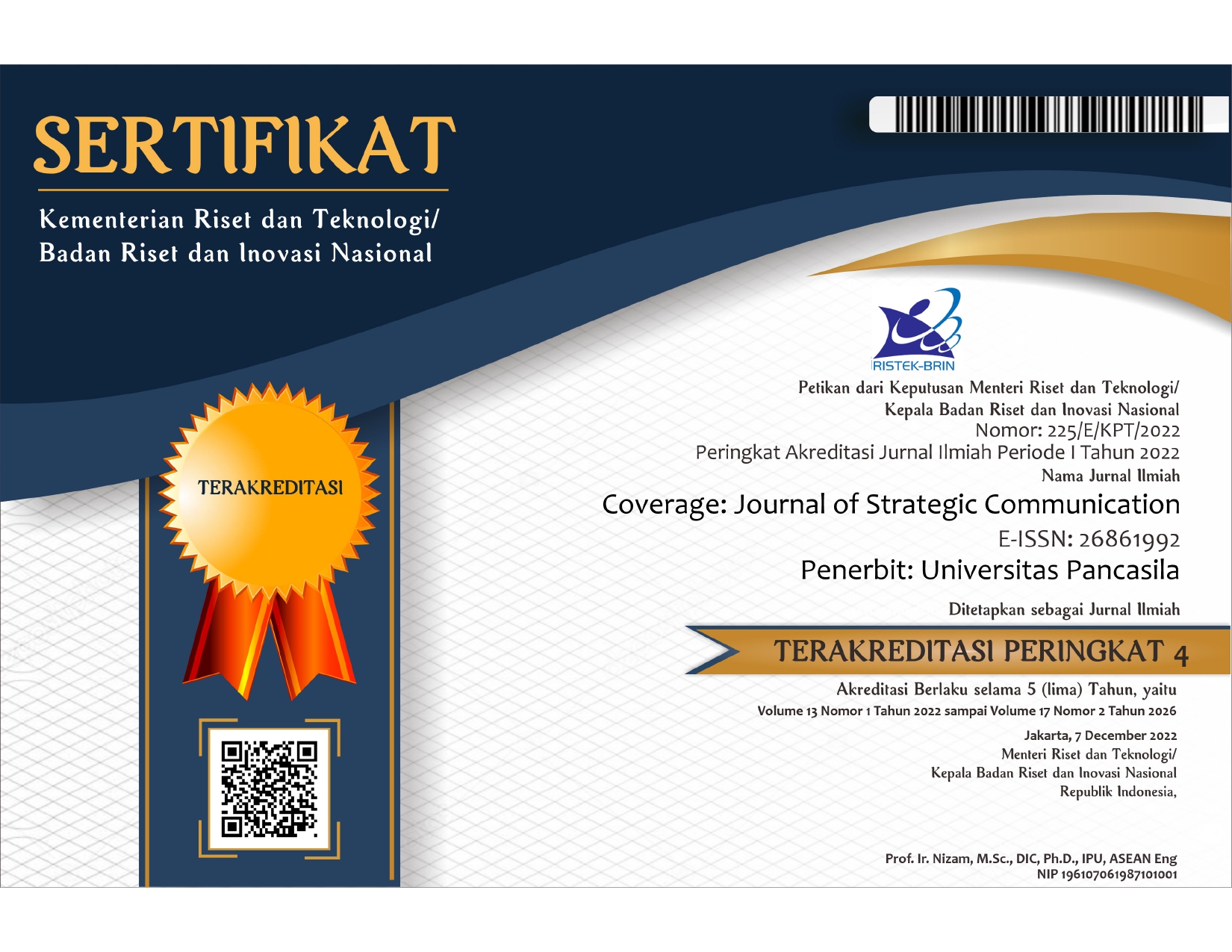Partisipasi Politik Online Generasi Z Pada Pemilihan Presiden Indonesia 2019
DOI:
https://doi.org/10.35814/coverage.v10i2.1381Keywords:
Political participation, digital divide, instrumental participation, informative participation, strategic participation, Generation “Z”Abstract
The purpose of this study is to examine online political participation among Generation Z. Many previous studies have reviewed offline and onlie political participation. The offline participation is measured by conventional and non-conventional, while online participation has not been much studied in the form of dimensions. Then online participation in this study will be examined with the level of digital literacy from the concept of Digital Divide. The sample in this study amounted to 92 respondents from the students of the Faculty of Communication, University of Pancasila. Overall, results showed that online political participation in the form of instrumental and informative is mostly utilized by the majority of respondents. While the strategic participation were very few carried out by respondents (7.6% - 17.3%). The results of this study can also be concluded that participation in watching, reading and seeking political information is more done by generation Z compared to participation involving other people such as interacting and influencing people to choose certain candidates.
References
Akmal, F., & Salman, A. (2015). Partisipasi Politik Belia Secara ‘Online’ Melalui Ruang Demokrasi Maklumat Media Baru. Malaysian Journal of Communications, 3(1), 81-100.
Arifin, A. (2013). Politik Pendidikan Tinggi Indonesia. Jakarta: Penerbit Pustaka Indonesia
Atmodjo, T. J. (2014). Dinamika Portisipasi Politik Remaja Melalui Media Sosial. Jurnal Visi Komunikasi, 13(2), 281-295.
Budiardjo, M. (2013). Dasar-Dasar Ilmu Politik. Jakarta: PT Gramedia Pustaka Utama.
Dewi, S. F. (2017). Sosiologi Politik. Yogyakarta: Gre Publishing.
Dijk, J. A. G. M. V. (2006). Digital Divide Research, Achievements and Shortcomings. Poetics, 34, 221-235. DOI: 10.1016/j/poetic.2006.05.004.
Dijk, J. V. (2008). Routledge Handbook of Internet Politics. Canada: Routledge.
Halim, U., & Rahim, S. A. (2011). Penglibatan Digital: Akses dan Penggunaan E-Agama dalam Kalangan Generasi Muda Muslim. Malaysian Journal of Communications, 27(2), 121-135.
Halim, U., & Dyah, K. (2019). Pengaruh Terpaan Media Terhadap Partisipasi Politik dalam Pilkada DKI Jakarta 2017. Jurnal ASPIKOM,Vol.4 (1), 45-59.
Harun, R., & Sumarno. (2006). Komunikasi Politik sebagai Suatu Pengantar. Bandung: Bandar Maju.
McKenna, K. Y. A., & West, K. J. (2005). Give Me That Online-Time Religion: The Role of The Internet in Spiritual Life. Computers in Human Behavior 23(2007) 942-954. DOI: 10.1016/j.chb.2005.08.007.
Mudjiyanto, B. (2012). Literasi Internet dan Partisipasi Politik Masyarakat Pemilih dalam Aktivitas Pemanfaatan Media Baru. Jurnal Studi Komunikasi dan Media, 16(1), 1-17.
Perangin-angin, L. L. K., & Zainal, M. (2018). Partisipasi Politik Pemilih Pemuka dalam Bingkai Jejaring Sosial di Media Sosial. Jurnal ASPIKOM, 3(4), 737-754.
Rasul, N. M., Rahim, S. A. R., & Salman, A. (2015). Penggunaan Media, Norma Kewarganegaraan, dan Partisipasi Politik dalam Era Transisi ke Demokrasi di Indonesia. Malaysian Journal of Communications, 31(1), 187-204.
Rohaniah, Y & Efrizah. (2015). Pengantar Ilmu Politik. Malang: Intrans Publishing.
Salman, A., & Saad, S. (2015). Online Political Participation: A Study of Youth Usage of New Media. Mediterranean Journal of Social Sciences, 6(4). DOI: 10.5901/mjss.2015.v6n4s3p88.
Salman, A., Salleh,N. A. M., Yusoff, M. A., & Abdullah, M. Y. (2018). Political Engagement on Social Media as Antecedent for Political Support among Voters in Malaysia. Malaysian Journal of Communications, 34(2), 152:165. DOI: 10.17576/JKMJC-2018-3402-10.
Syafiyyah, A. (2003). Kiprah Politik Muslimah. Jakarta: Gema Insani.





















